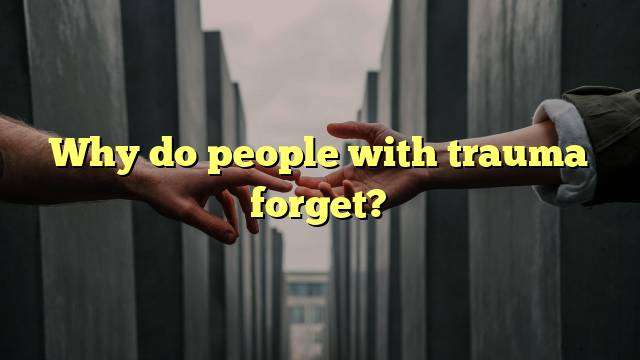The Impact of Trauma on Memory
Trauma can have a debilitating effect on memory, causing individuals to forget or suppress important memories. Scientists believe this is due to a process called state-dependent learning, which means that memories are created in a certain state of mind, particularly during times of stress or trauma. In this state, these memories become inaccessible in a normal state of consciousness.
The Process of State-Dependent Learning
State-dependent learning is a process where memories are formed in a particular mental or physical state. This can be affected by a variety of factors, such as emotions, physical environment, and even the use of drugs and alcohol.
When a person experiences a traumatic event, it can cause them to enter a state of heightened emotion or stress. This state is known as a traumatic state and has a major effect on the formation of memories. During this state, memories are formed differently than in a relaxed state.
When a person is in a relaxed state, memories are created and stored in the hippocampus and other areas of the brain. During a traumatic state, however, memories are not stored in the same way, as the brain is in a heightened state of alert.
The Impact of Trauma on Memory Formation
The impact of trauma on memory formation can be severe. During a traumatic experience, the brain is in a heightened state of alert and the memories that are formed are not stored in the same way as those formed in a relaxed state.
Studies have shown that individuals who have experienced trauma have difficulty accessing memories of the event, even when they are reminded of the experience. This is because the memories are stored in a different part of the brain and are not easily accessible.
Another factor that can affect memory formation is the use of drugs and alcohol. Individuals who use these substances during a traumatic event may find that the memories are more difficult to recall. This is because the brain is not in its normal state and is not capable of forming memories in the same way as when it is in a relaxed state.
The Link Between Trauma and Memory Loss
The link between trauma and memory loss is complex and still not fully understood. Studies have shown that individuals who experience trauma often struggle to remember the details of the event, leading to a loss of important memories.
This can have a significant impact on an individual’s life and can lead to long-term psychological effects. Research has shown that individuals who experience trauma may be more prone to developing post-traumatic stress disorder (PTSD) and depression.
Tips for Coping with Memory Loss After Trauma
Although it is not possible to completely reverse the effects of trauma on memory, there are a few strategies that can help individuals cope with memory loss.
- Seek Professional Help: Seeking professional help from a mental health provider can be beneficial in dealing with the effects of trauma on memory. A mental health provider can provide counseling and support to help individuals cope with memory loss and other symptoms of trauma.
- Create a Safe Space: Creating a supportive environment can help individuals process their memories more effectively. This can include talking to trusted family and friends, as well as engaging in activities that bring joy and comfort.
- Engage in Regular Exercise: Regular physical activity can help to reduce stress and improve cognitive function. Exercise can also help to increase levels of endorphins, which can help to boost mood and reduce the symptoms of trauma.
- Practice Relaxation Techniques: Relaxation techniques such as yoga, meditation, and deep breathing can help to reduce stress and improve mental clarity. Practicing relaxation techniques can also help to reduce the symptoms of trauma.
Conclusion
Trauma can have a significant effect on memory formation and recall. The process of state-dependent learning means that memories formed during a traumatic experience are stored differently in the brain than those formed in a relaxed state. This can lead to difficulty accessing memories of the event, even when they are reminded of it. Fortunately, there are strategies that individuals can use to cope with memory loss after trauma, such as seeking professional help, creating a safe space, engaging in regular exercise, and practicing relaxation techniques.



